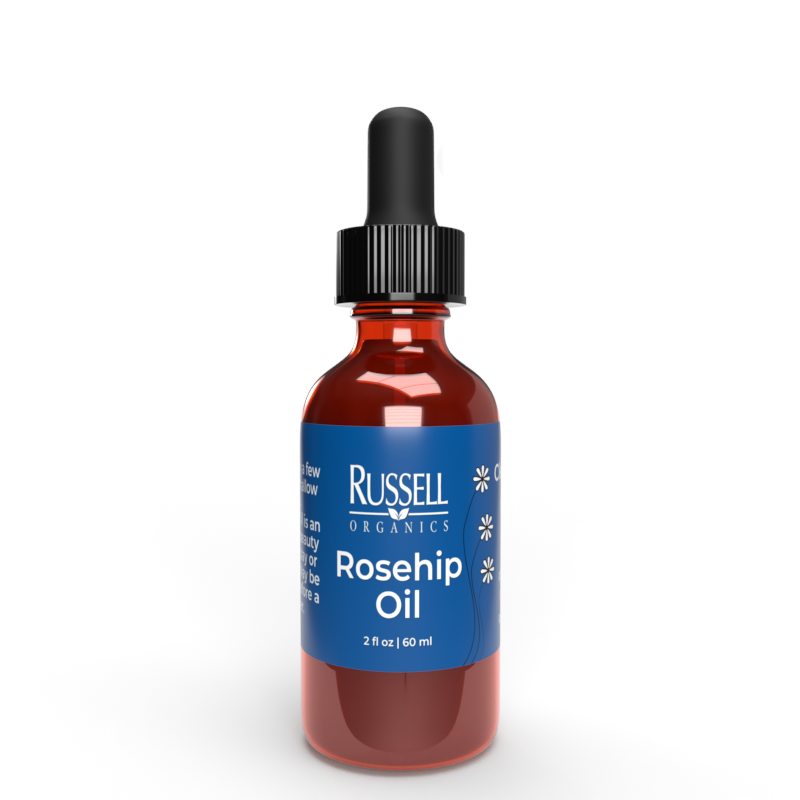
Rosehip seed oil, extracted from the seeds of the wild rose bush, has gained immense popularity in the skincare industry due to its wide array of benefits. Packed with essential nutrients and fatty acids, this versatile oil provides a natural solution for a wide range of skin issues. In this comprehensive article, we will explore the diverse skin benefits of applying rosehip oil topically.
Vitamin Powerhouse
One key reason rosehip oil is highly beneficial for the skin is its abundance of vitamins. Rosehip oil is particularly rich in vitamins A, C, and E. These essential vitamins are vital in preserving skin health.
Retinoic Acid
Vitamin A is a well-known ingredient in many skincare products for its ability to encourage skin cell turnover. This nutrient helps reduce the appearance of fine lines and wrinkles. It also supports collagen production, which is essential for keeping the skin's elasticity and firmness.
Vitamin C
Ascorbic acid is another powerful antioxidant found in rosehip oil. It helps protect the skin from damage caused by free radicals and environmental aggressors. Moreover, vitamin C is recognized for its skin-brightening properties. Regular use of rosehip oil can even out the skin tone and reduce hyperpigmentation.
Vitamin E
Tocopherol is a critical nutrient for skin health. It acts as a powerful antioxidant, protecting the skin from oxidative stress. This vitamin also aids in maintaining the skin's moisture barrier, preventing dryness and keeping the skin well-hydrated.
Nourishing Fatty Acids
Rosehip oil is also rich in vital fatty acids, including omega-3, omega-6, and omega-9. These nutrients are essential in preserving the skin's natural protective barrier and retaining moisture.
Linolenic Acid
Linolenic acid are recognized for their anti-inflammatory effects. These acids help calm irritated and inflamed skin. For those with sensitive or acne-prone complexions, rosehip oil can be particularly beneficial.
Linoleic Acid
Linoleic acid play a key role in supporting the skin's barrier integrity. These acids help prevent moisture loss and maintain skin hydration. Linoleic acid is also known to help reduce acne by regulating sebum production.
Oleic Acid
Oleic acid offer essential nourishment and moisture to the skin. These acids are also known to improve the absorption of other beneficial compounds in skincare products.
Fighting the Signs of Aging
Rosehip oil is famous for its anti-aging properties. Regular use of this oil can significantly reduce the visibility of fine lines, wrinkles, and age spots.
Boosts Collagen Production
As mentioned earlier, rosehip oil contains vitamin A, which stimulates collagen production. Increased collagen levels lead to firmer and more elastic skin. It lessens the visibility of fine lines and wrinkles, giving the skin a more youthful appearance.
Hyperpigmentation Reduction
The vitamin C content in rosehip oil helps lighten dark spots and hyperpigmentation. Consistent use of the oil can result in a more even skin tone and brighter overall complexion.
Texture Improvement
This oil also aids in improving skin texture. It promotes skin cell turnover, resulting in smoother and more refined skin. Moreover, the moisturizing qualities of the oil help the skin stay soft and supple.
Moisturizing and Hydrating
A major benefit of rosehip oil is its capacity to deeply moisturize and hydrate the skin. Its lightweight texture allows for easy absorption without leaving a greasy residue.
Locks in Moisture
Fatty acids present in rosehip oil assist in moisture retention, preventing skin dryness and keeping the skin hydrated. This makes rosehip oil an excellent choice for those with dry, dehydrated skin.
Strengthens the Skin Barrier
Strengthening the skin's natural protective barrier, rosehip oil helps preventing moisture depletion and protects against environmental aggressors. This is particularly beneficial for those with sensitive skin.
Skin Healing
Rosehip oil is also known for its healing capabilities. Its high content of vitamins and fatty acids it helps repair damaged skin and promotes healing.
Scar Reduction
The vitamin A and fatty acids in rosehip oil help reduce the appearance of scars, including acne scars and surgical scars. Regular use of the oil can result in smoother and less noticeable scars.
Soothes Inflammation
Anti-inflammatory properties of rosehip oil aid in rosehip oil organic soothing irritated and inflamed areas. This makes it an excellent choice for skin care needs.